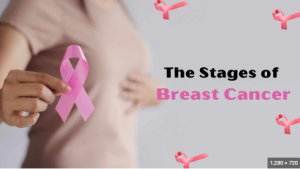Introduction to Breast Cancer
- Introduction to Breast Cancer
- What is breast cancer?
- Importance of awareness and early detection.
- Types of Breast Cancer
- Ductal Carcinoma In Situ (DCIS)
- Invasive Ductal Carcinoma (IDC)
- Invasive Lobular Carcinoma (ILC)
- Other less common types.
- Causes and Risk Factors
- Genetic predisposition
- Hormonal factors
- Lifestyle factors
- Environmental factors

- Symptoms and Signs
- Lump or mass in the breast
- Changes in breast appearance
- Nipple discharge
- Pain or discomfort
- Diagnosis
- Mammogram
- Ultrasound
- Biopsy
- Stages of Breast Cancer
- Stage 0: Carcinoma In Situ
- Stages I and II: Early-stage breast cancer
- Stage III: Locally advanced breast cancer
- Stage IV: Metastatic breast cancer
- Treatment Options
- Surgery
- Radiation therapy
- Chemotherapy
- Hormonal therapy
- Targeted therapy
- Immunotherapy
- Survivorship and Support
- Coping with diagnosis
- Support groups and resources
- Follow-up care
- Prevention and Early Detection
- Regular screenings
- Lifestyle modifications
- Genetic testing and counseling
- The Importance of Awareness and Education
- Spread of awareness
- Community initiatives
- Research and advancements
- Myths and Misconceptions
- Common misconceptions about breast cancer
- Debunking myths with facts
- Global Impact
- Breast cancer statistics worldwide
- Disparities in access to care
- Innovations in Treatment and Research
- Emerging therapies
- Advances in genetics and precision medicine
- Supporting Loved Ones
- Role of family and friends
- Providing emotional support
- Conclusion
- Summarize key points
- Encourage proactive healthcare practices
Breast Cancer
Breast cancer is a significant health concern affecting millions of women worldwide. It develops when cells in the breast mutate and grow uncontrollably, forming a tumor. This article aims to provide comprehensive information about breast cancer, including its types, causes, symptoms, diagnosis, treatment options, and prevention strategies.
Introduction to Breast Cancer
Breast cancer is the abnormal growth of cells in the breast tissue. It can occur in both men and women, although it is far more common in women. Breast cancer awareness and early detection are crucial for improving survival rates and outcomes.
Types of Breast Cancer
There are several types of breast cancer, including ductal carcinoma in situ (DCIS), invasive ductal carcinoma (IDC), invasive lobular carcinoma (ILC), and less common subtypes. Each type may require different treatment approaches.
Causes and Risk Factors
Various factors can increase the risk of developing breast cancer, including genetic predisposition, hormonal factors, lifestyle choices, and environmental exposures. Understanding these risk factors can help individuals make informed decisions about their health.
Symptoms and Signs
Early detection of breast cancer is essential for successful treatment. Common symptoms include a lump or mass in the breast, changes in breast appearance, nipple discharge, or pain. It’s crucial to consult a healthcare professional if any concerning symptoms arise.
Diagnosis
Diagnosing breast cancer typically involves imaging tests such as mammograms and ultrasounds, followed by a biopsy to confirm the presence of cancer cells. Early diagnosis enables prompt initiation of treatment.
Stages of Breast Cancer
Breast cancer is staged based on the size of the tumor, lymph node involvement, and metastasis. Stages range from 0 (carcinoma in situ) to IV (metastatic breast cancer), with each stage requiring tailored treatment approaches.
Treatment Options
Treatment for breast cancer may include surgery, radiation therapy, chemotherapy, hormonal therapy, targeted therapy, and immunotherapy. The choice of treatment depends on the type and stage of cancer, as well as individual patient factors.
Survivorship and Support
Living with breast cancer can be challenging, but there are numerous resources and support networks available to help patients cope with their diagnosis, manage treatment side effects, and navigate survivorship.
Prevention and Early Detection
Preventive measures such as regular screenings, lifestyle modifications (e.g., maintaining a healthy weight, limiting alcohol consumption), and genetic testing can reduce the risk of developing breast cancer or detect it at an early, more treatable stage.
The Importance of Awareness and Education
Raising awareness about breast cancer and promoting education is vital for dispelling myths, encouraging early detection, and supporting ongoing research efforts to improve treatment outcomes.
Myths and Misconceptions
Addressing common misconceptions about breast cancer can empower individuals to make informed decisions about their health and seek appropriate medical care when needed.
Global Impact
Breast cancer affects millions of people worldwide, with significant disparities in access to care and outcomes. Addressing these disparities requires concerted efforts on a global scale.
Innovations in Treatment and Research
Advancements in breast cancer research and treatment, such as targeted therapies and immunotherapies, hold promise for improving survival rates and quality of life for patients.
Supporting Loved Ones
Family and friends play a crucial role in supporting individuals diagnosed with breast cancer, providing emotional support, and helping them navigate the challenges of treatment and recovery.
Conclusion
Breast cancer remains a significant public health concern, but advancements in screening, diagnosis, and treatment have improved outcomes for many patients. By raising awareness, promoting early detection, and supporting ongoing research, we can continue to make strides in the fight against breast cancer.
FAQs (Frequently Asked Questions)
- What are the most common symptoms of breast cancer?
- The most common symptoms include a lump or mass in the breast, changes in breast appearance, nipple discharge, or pain.
- At what age should women start getting regular mammograms?
- Women should discuss with their healthcare provider about when to start regular mammograms, but typically it’s recommended to begin around the age of 40.
- Is breast cancer only hereditary?
- While genetic factors can increase the risk of developing breast cancer, many cases occur in individuals with no family history of the disease.
- Can men get breast cancer?
- Yes, although rare, men can develop breast cancer. It’s essential for everyone to be aware of the signs and symptoms.
- How can I support a loved one diagnosed with breast cancer?
- Offer emotional support, accompany them to appointments, help with household tasks, and encourage them to seek additional support from healthcare professionals or support groups.





